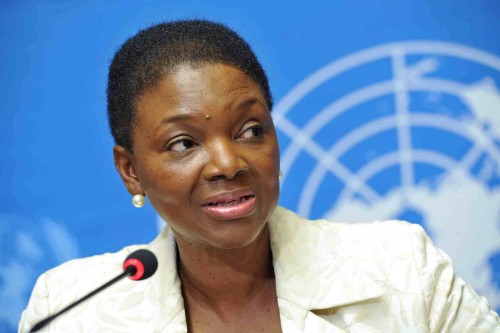 The United Nations appealed Monday for $16.4 billion to pay for global humanitarian needs in 2015, saying it needs that money to help 57.5 million of the world’s most vulnerable people.
The United Nations appealed Monday for $16.4 billion to pay for global humanitarian needs in 2015, saying it needs that money to help 57.5 million of the world’s most vulnerable people.
More than 40 percent of the appeal — $7.2 billion — would go to help 18.2 million people suffering from the war in Syria.
The 2015 request on behalf of 455 aid organizations does not include money to help feed the millions facing hunger in Africa’s Sahel region, which has seen repeated droughts and other crises. That appeal is being launched in February.
The U.N. agencies and their partners say the aid needs for 2014 swelled to $17.9 billion in 31 countries — but that they were only able to muster $9.4 billion, or 52 percent of it, from donors. That has left $8.5 billion in unmet needs, many of which have been rolled over into 2015.
Valerie Amos, the U.N.’s humanitarian chief and emergency coordinator, said aid in 2014 helped avert a famine in South Sudan, fed millions of Syrians each month, provided medical supplies to 1 million Iraqis and paid for food for 903,000 people in Central African Republic.
But with 80 percent of the needy in conflict-ridden countries, the demands for aid are outstripping the ability to pay for them, Amos said. As of Nov. 30, there were an estimated 102 million people in need of aid around the world, of which 76 million are considered particularly vulnerable, she said.
“Each year, we ask our donors for more and more funding for our appeals,” she told reporters in Geneva. “But as needs rise, the resource gap is widening.”
This appeal covers Central African Republic, Iraq, South Sudan and Syria, the top humanitarian priorities, as well as Afghanistan, Democratic Republic of Congo, Myanmar, occupied Palestinian territories, Somalia, Ukraine and Yemen.
Stain
Baroness Valerie Amos, said what was happening in Syria was a “stain on the international community”.
UT SD

Leave a Reply
You must be logged in to post a comment.